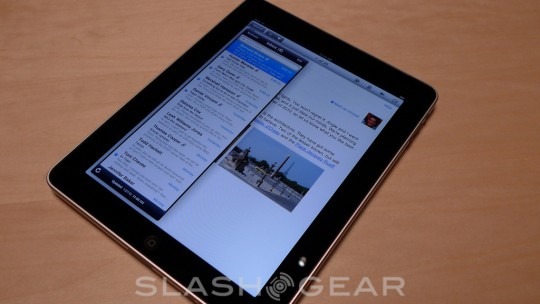When The PC Is A Toaster
It hasn't been that long since Apple announced a computer that was more appliance than traditional PC and we're still feeling the shocks. It was a "closed" system and the digerati panned it. Some said it would hurt future generations who would lack the tools to tinker and program. Others decried a new metaphor for dealing with information as too limiting and toy-like. Universally, it was agreed that it was way overpriced for what it offered to the market. Now you might think I'm talking about the introduction of the iPad a few weeks ago. Actually, I'm referring the introduction of Macintosh in 1984.
When Macintosh was introduced it was almost universally panned by the geeks. Monochrome display? A fixed 128k of memory? A PC that didn't come bundled with a programming language? No expansion slots to add all sorts of tech goodies? For heaven's sake, there aren't even any cursor keys! The first Macs lacked all of those things and a funny thing happened, it was a hit with people who would have never viewed themselves as computer users. The original Macintosh slogan, "the computer for the rest of us" made it clear where Apple was going. This was a computer that was aimed at, not the enthusiast market, but the mass market.
Now, that doesn't mean it was a commercial success. $2,495 computers in 1984 were not going to sell in the numbers that Apple needed to. It was a rocky road to success and finding niche markets and, oddly enough, enthusiasts, who would carry the Mac torch until Steve Jobs returned to Apple and introduced a new product called iMac. The PC as appliance was reborn. Even through several incarnations and evolutions over the last decade, the iMac remains very true to Apple's original vision of an all-in-one computer that could appeal to a mass market.
Personal computers, however, remain complicated. Most of us who are enthusiasts know this as we field calls from frustrated friends and relatives and help them walk through complex issues of networking, stability, security and the other pains of modern day PC life. While many of us use our PCs to create content with sophisticated tools, most users don't create content beyond playlist generation and simple image editing. In fact, that's why we call most users, consumers.
Recently, the success of smartphones with consumers shows that there's a gap between the desire for simplified appliance computing and PCs. I know many users who use their iPhone as their primary computing device, despite the fact that they're hampered by the small form factor. They simply are willing to trade simplicity for features and functions as well as complexity.

Which of course brings me to the iPad. Lots of the criticism around the iPad mimics the same criticism that Apple faced with the introduction of Macintosh. Macintosh was the first computer of the era to not ship with a programming language. For the enthusiast of the time, it was a huge issue. For the consumers, the inclusion of MacWrite and MacPaint was far more valuable and useful. I don't suggest the iPad is a device for everyone. It certainly won't replace my office setup of multiple, large screen, high resolution monitors and a suite of creativity tools that give me the ability to do things that were merely science fiction a decade ago. For many scenarios, however, I can see how for me it will be the device that will be "just right" where my phone is simply too small and my computer just too big. Appliance computing is important and will open up simpler and more efficient ways to do the things most people want to do, without the complexity and pain of the PC.
It was not that long ago that a generation took shop class to understand how to maintain and repair their cars. My first car was a manual shift that required far more training and practice to be proficient at. While there are still many who desire to tinker with their cars and prefer the "control" of a manual vs. automatic transmission, the vast majority of consumers prefer the simplicity of the cars they drive and don't need or care to know how to tinker with them or fix them when they break. Likewise, Apple's iPad bet is there are consumers looking for a better and easier computing experience and the iPad is the first device large enough and sufficiently optimized to offer them the functionality they need without the complexity that the PC carries as a burden. Over time, expect to see more of this model from other vendors. The PC will be around for a long time to come, but it may no longer be the computing model for the masses in the long run.
